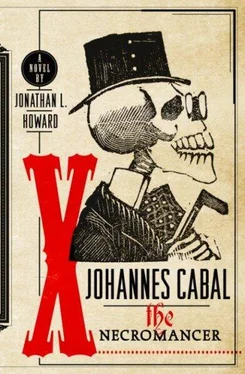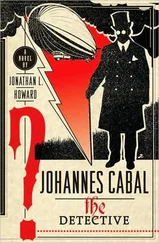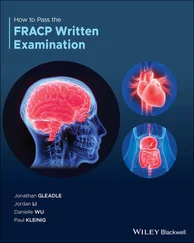All these desires can be understood and to a greater or lesser extent sympathised with. It is, however, impossible to have the faintest idea what was going through the minds of the people who bought plots in the Grimpen Burial Ground. Perhaps they hated their relatives and wanted to drag them into one of the ugliest and most depressing places on Earth, if only for the funeral.
The Grimpen Burial Ground stood — if that is the right word, and “lay” if it is not — in the heart of the last marsh in the land that, until recently, contained malaria. No effort had been necessary to wipe out the last of the disease-carrying anopheles mosquitoes; they simply seemed to give up the will to live.
The burial ground itself had been cunningly placed on the head of a peninsula that could be safely reached only by traversing a long and serpentine isthmus surrounded on all sides by a sucking bog of the sort that makes frequent appearances in adventure stories. None could guess how many arch-criminals, diabolical Gypsies, and Things Man Was Not Meant to Know had breathed their last, frantic, gasping breaths before vanishing beneath the clinging filth. It was likely to be a fair few.
Then onwards, along the winding, desperate path, until one reached the burial ground’s rusting gates. Predictably, one hung from a single hinge and screeched eerily, given the excuse of the faintest breeze. And in the Grimpen Burial Ground, breezes never got stronger than faint, for anything stronger might perhaps have made headway in shifting the mists. That would never do. People talk about the London pea-soupers, but although those legendary fogs may have been yellow, unhealthy, and thick enough to bottle, they had absolutely no class. The Grimpen mists, in contrast, had style to spare. They drifted slowly and enigmatically, eldritch and eerie, ever encroaching, enveloping all. They had the air of watching and waiting. People hated attending burials there; the mists, the infamous mists, seemed to be watching the living. And waiting for them to die.
Yet the burial ground was closed because it was full. Full of the dead that people wanted to forget. The malevolent fathers and the bastard sons, the insane mothers and the diseased daughters. They came, one and all, in their coffins of bare pine or fashioned teak, to be interred in this distant place and conveniently allowed to slip the memories of the people who stood, dry-eyed, by their yawning graves. Some of the last resting places were marked with ornate gravestones of exotic marble or hard granite brought from far away. Others, less wealthy or less hypocritical, marked the sites of the less-than-dearly departed with local slate, cheap limestone, or even wood. Loathed magnate and embarrassing heir by the second under-stairs maid lay side by side, their gravestones sagging in the moist soil, united by the simple fact that no living human heart had any place for them.
For all that, however, the burial ground wasn’t quite filled. In the rear of the burial ground, overlooking the bogland at the farthest point from the gates, there was one place that lay only partially occupied. It was the one and only family crypt to be found there, and its story is an extraordinary one.
* * *
The Druin family could follow its line back to the Norman invasion; their name was presumed to be a corruption of “de Rouen,” although there was no evidence that they originally came from that place. Their ancestor’s role in the invasion is open to interpretation. The family claimed that he rode at William the Conqueror’s side because he was a trusted aide and confidant. In light of their more recent and documented history, it has been mooted that William was simply keen to keep an eye on him. Whatever the truth of it, it is fact that the family was granted a plot of land for perpetuity, a plot that included the bogland that the burial ground now stood upon.
The family muddled through the centuries, frequently backing the wrong horse in a multitude of conflicts yet always managing to get onto the winning side at the last through some dazzling act of treachery. Richard III is rumoured to have known he was doomed when the Druin’s defection to the House of Lancaster actually during the battle was reported to him. He made some comment about rats and sinking ships before going off to look for his horse.
From the Plantagenet years onwards, the Druins were said to be capable of swapping from Protestant to Roman Catholic and back again within the period of a single church service. Indeed, a secret library discovered during renovations of Druin Manor contained a copy of the catechism; the Bible in Greek, Latin, and English; a treatise on Calvinism; the Koran; the Tripitaka; and an Arabic book bound in curious leather that was later stolen by a gang consisting of an antiquarian, a mobster, and a woman with a lisp.
The family managed to maintain a place in court throughout many changes until the Industrial Revolution happened along and they discovered that they could make more money the nouveau-riche way. Mills and railways were heavily invested in, children sent down mines, the word “philanthropy” carefully crossed out in the family dictionary; the Druins became richer and richer and richer.
It was about then that the effects of great wealth and a small gene pool started to spell their doom. Inbreeding, largely imposed upon them by a world that put too much store in bad reputations, started to strip the gears of their collective sanity. They became madder and madder and madder, and they never did so cheaply.
Beatrice built the Museum of the Legume, housing the world’s largest collection of peas. Horace excavated an inversion of the Palace of Westminster, a huge jelly mould of the Mother of Parliaments. Jeremy formed a hunt of foxes with which he used to go beagle-hunting before moving up a level and storming people’s houses with a troop of crack badgers.
The atmosphere of mutual loathing and unilateral insanity became almost palpable. Aunt Sophia, the only one to maintain a marble count in double figures, went abroad in a determined attempt to find some curative Measure.
Apparently, she failed. Yet she came back, after years of travel, curiously calmed and tolerant, perhaps even a little smug.
Her first action on her return was to create the Grimpen Burial Ground and have the Druin family crypt built in its most inaccessible corner. Every surviving member of the family had a place allocated, with the sole exception of Sophia herself. Asked why, she replied with grim satisfaction that if she had learned anything in her travels, it was that the family could never hope to lose the taint of madness and was doomed to extinction. As to why she had no place reserved in the crypt, it was because she would survive them all.
The rest of the family looked at one another significantly. Mad or not, they needed no weatherman to tell them how the wind blew.
Sophia’s luck suddenly seemed to leave her. She suffered a series of accidents, all of them fatal. Several times she was declared dead, as misfortune — sometimes embodied as a plummeting sack of concrete, sometimes as some other heavy, fast item that had coincidentally happened to cross her path at head height — dogged her every step.
By a striking happenstance, the rest of the family was always some distance away when misfortune struck — heavily — and always had cast-iron alibis, sometimes typed up days in advance. Yet Sophia would inevitably sit up on the mortuary slab, stretch, and ask what time tea was.
Ultimately, however, she was overtaken by a particularly unfortunate accident that brought together a steamroller, Sophia, and almost four tons of gelignite at the same time and the same place. This time there was no possibility of any requests for elevenses during the post-mortem. Aunt Sophia was taken down from the trees, scraped off the road, and plucked from the surface of the duck pond with shrimping nets, placed with all due ceremony in her favourite hip bath along with her favoured bathtime accoutrements, and interred in the darkest corner of the family crypt. And that was that. For very nearly two months.
Читать дальше










